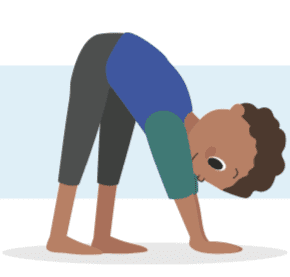Sleep is a critical and important activity for a child. If a child isn’t getting enough sleep, they will likely be inattentive, disorganized, and dysregulated. For children with sensory processing difficulties, sleeping can be a struggle for both the child and their parents. Children with Sensory Processing Disorder have difficulty processing, organizing, and responding to sensory input resulting in atypical responses which can impact their ability to complete their bedtime routine.

Why do children with sensory issues experience difficulties with sleep?
Children with Autism or Sensory Processing Disorder (SPD) often have difficulty sleeping. This is because when a child has difficulty processing sensory input and responding appropriately to their environment, a child may experience sensory overstimulation/overload and dysregulation. This will cause difficulty with self-regulation or self-soothing which is an important aspect of falling asleep.
How can pediatric occupational therapy help sleep issues?
If your child is having difficulty with sleeping, an occupational therapist can work with your child to address sensory processing needs and provide strategies at home to improve your child’s sleep routine.
Tips for helping children with sensory issues sleep:
- Establish a bedtime routine: having your child follow a predictable routine at a consistent time will help your child know what to expect every night. For example, maybe you brush teeth first, then put on pajamas, then read a book together while sitting in bed. There is also a great alarm clock that alerts the child that it is time to wake up and also has a nap timer on it which can help establish a consistent routine for your child. Click here to purchase an alarm clock.
- Create a visual schedule: Creating a visual schedule can help your child know what the routine is when it is time for bed. You can create a visual schedule that lays out step-by-step what is expected of them.
- Calming music/white noise: using calming music or white noise can help your child calm their body and block out any other distracting noise to help them to fall asleep.
- Weighted blankets: Weighted blankets can have a great value for helping children with sleeping difficulties. These blankets provide proprioceptive (deep pressure) input to help calm your child’s body. With the sensory input plus the added sense of security, a weighted blanket can help the child to relax when it is time to go to sleep.
- Consider bedding and clothing: Many children with sensory issues are very sensitive to certain fabrics and smells. Spend time with your child picking out pajamas and bedding made from materials they find comfortable. You can even purchase tagless pajamas or cut out the tags to improve your child’s tolerance of the pajamas. You can also wash the bedding and clothing with unscented detergent if your child is sensitive to certain smells.
- Heavy work activities: completing heavy work activities such as wheelbarrow walks, animal walks, and yoga poses before bedtime can help your child calm and regulate their bodies to help them fall and stay asleep.
- Eliminate or decrease naps during the day: Sleeping during the day might impact your child’s ability to fall asleep at night. You can start by decreasing the amount of time they nap or having them go to bed at an earlier time.
- Use your child’s bedroom for sleep time only: If you allow your child to play or watch TV in their rooms, they may associate their room with a place that they do things while awake making it harder for your child to fall asleep at night.
- Limit screen time in the evening: Be sure to limit the amount of time your child spends in front of a screen after school, particularly in the hour or two right before bedtime. The light from the screen can actually stimulate your child’s brain making it hard to fall asleep.
Sleeping is one of the most important routines for a child. Having a good night’s rest allows a child to better attend, learn, and engage within environments during the day.
If your child is having difficulties with sleeping, contact Chicago Occupational Therapy or call (773) 980-0300 to learn more about our services and how we can help your child flourish and grow.

